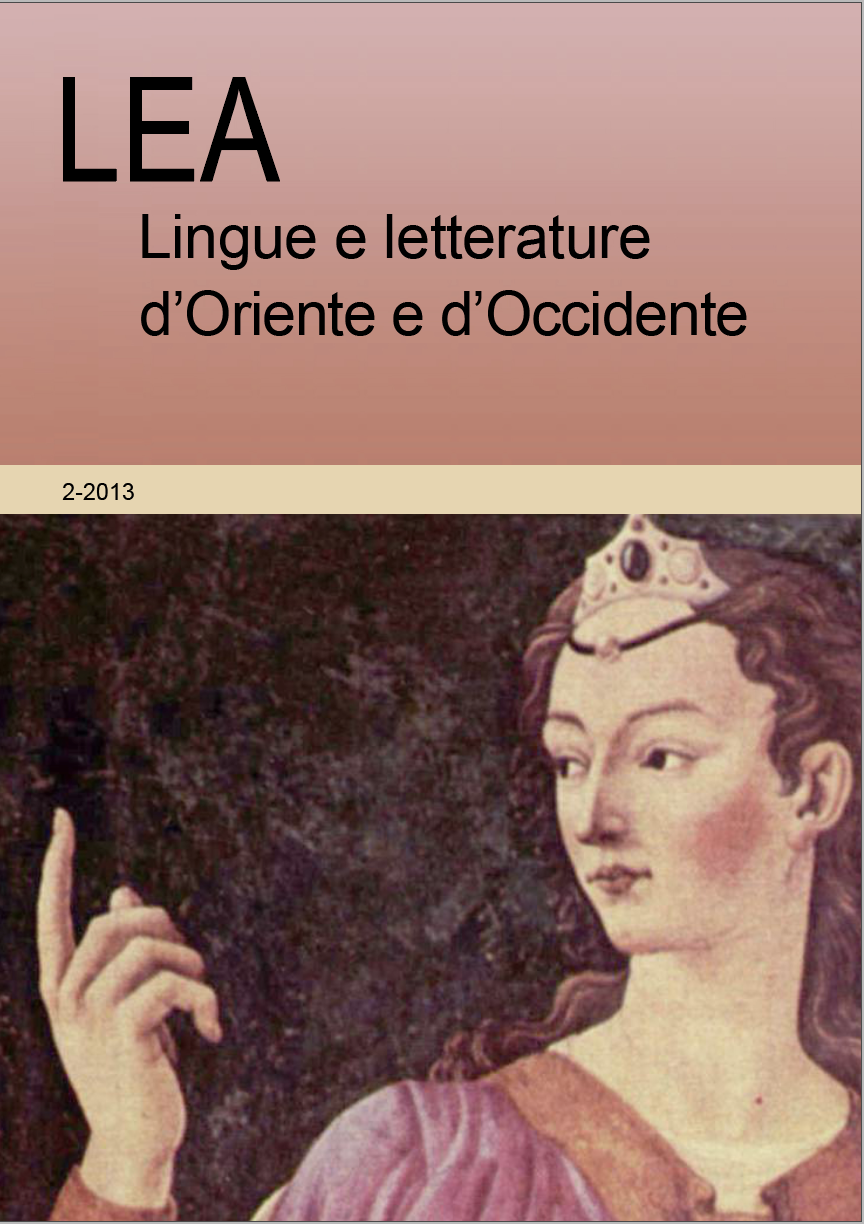La vergogna motivazionale e paralizzante. La figura del parvenu negli scritti di L. Onerva, sullo sfondo storico della Finlandia di inizi Novecento
Published 2014-05-28
Keywords
- Finnish literature,
- gender aspect,
- Onerva,
- parvenu/nousukas
Abstract
This article examines the phenomenon of the nousukas (upstart, parvenu, social climber), a “strategic hybrid” figure from Finnish literature at the turn of the 20th century, against the ideological background of 19th century Finnish nationalism. L. Onerva (Hilja Onerva Lehtinen, 1882-1972), an influential Finnish writer of the first decades of the 20th century, concentrated specifically on the phenomenon in her collection of short stories Nousukkaita (Parvenues, 1911). The article’s analysis of the trauma of shame, connected to the figure of the nousukas, is based on various short stories from Onerva’s collection, particularly those entitled “Veren ääni” and “Marja Havu”. Intersectional analysis of the texts highlights the relevance of gender, social class and ethnicity to the types of shame experienced by L. Onerva’s social climbers.



